![]()
In the last post, we talked about the format of the charrette and some examples of how questions were answered. This post dives more deeply into the personal and community stories that were gathered at the charrette and the “Street Team” table we had earlier that morning. The Street Team mapped stories that visitors wrote down and many of them were continued in the charrette.
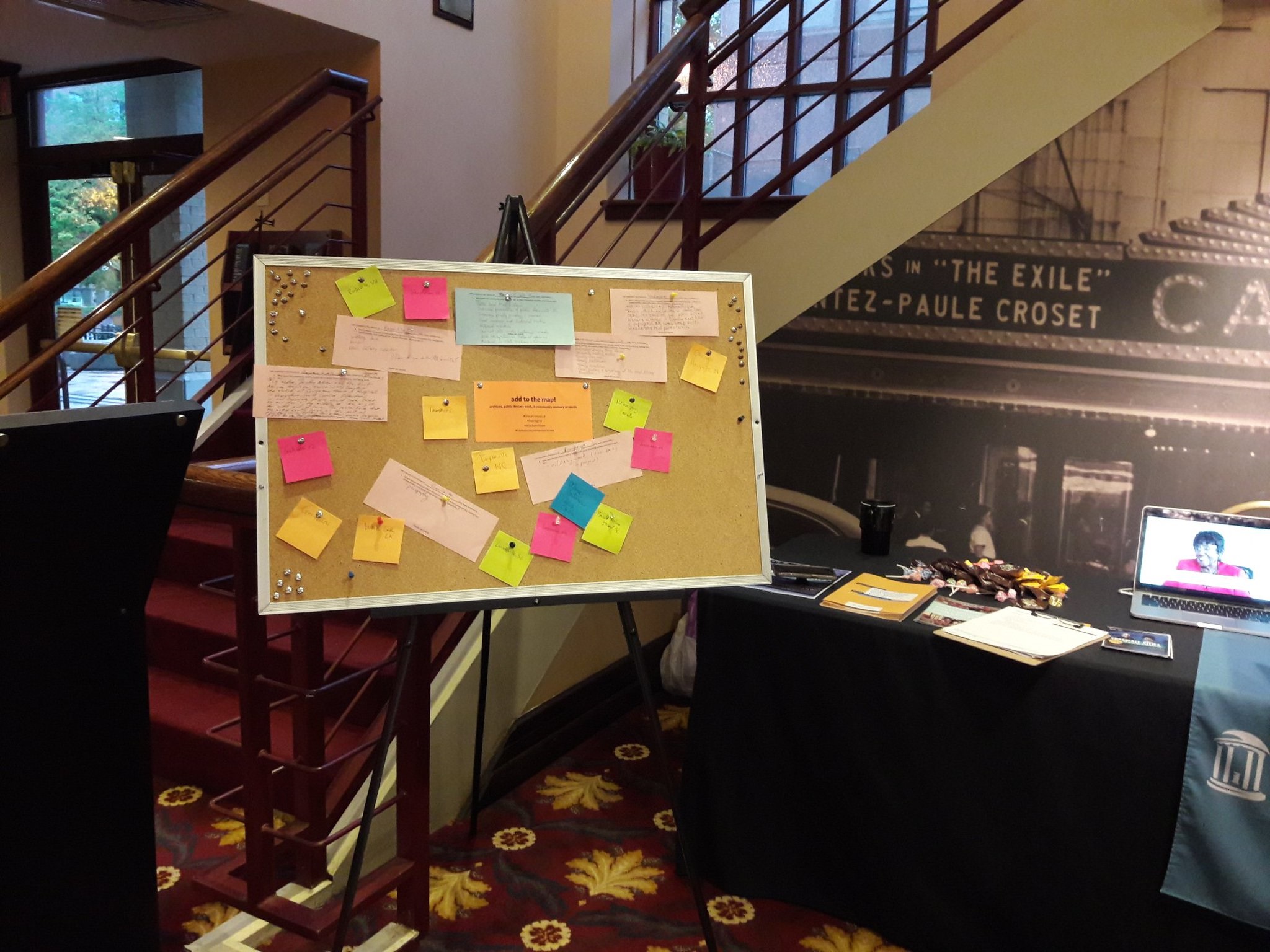 Our Street Team table at BlackCom2018 at the Carolina Theatre, Durham NC.
Our Street Team table at BlackCom2018 at the Carolina Theatre, Durham NC.
The questions were broad but flexible in that people could answer in generalizations or with very specific examples. Some people took the prompts literally and named places like Eastside Oklahoma City, Rentiesville, Portland, and Detroit as their examples of communities. Others understood the concept of community in a more abstract way, citing “Hip Hop” and “Black artists.” Both interpretations speak to the CDAT’s use of community, both tangible and non concrete.
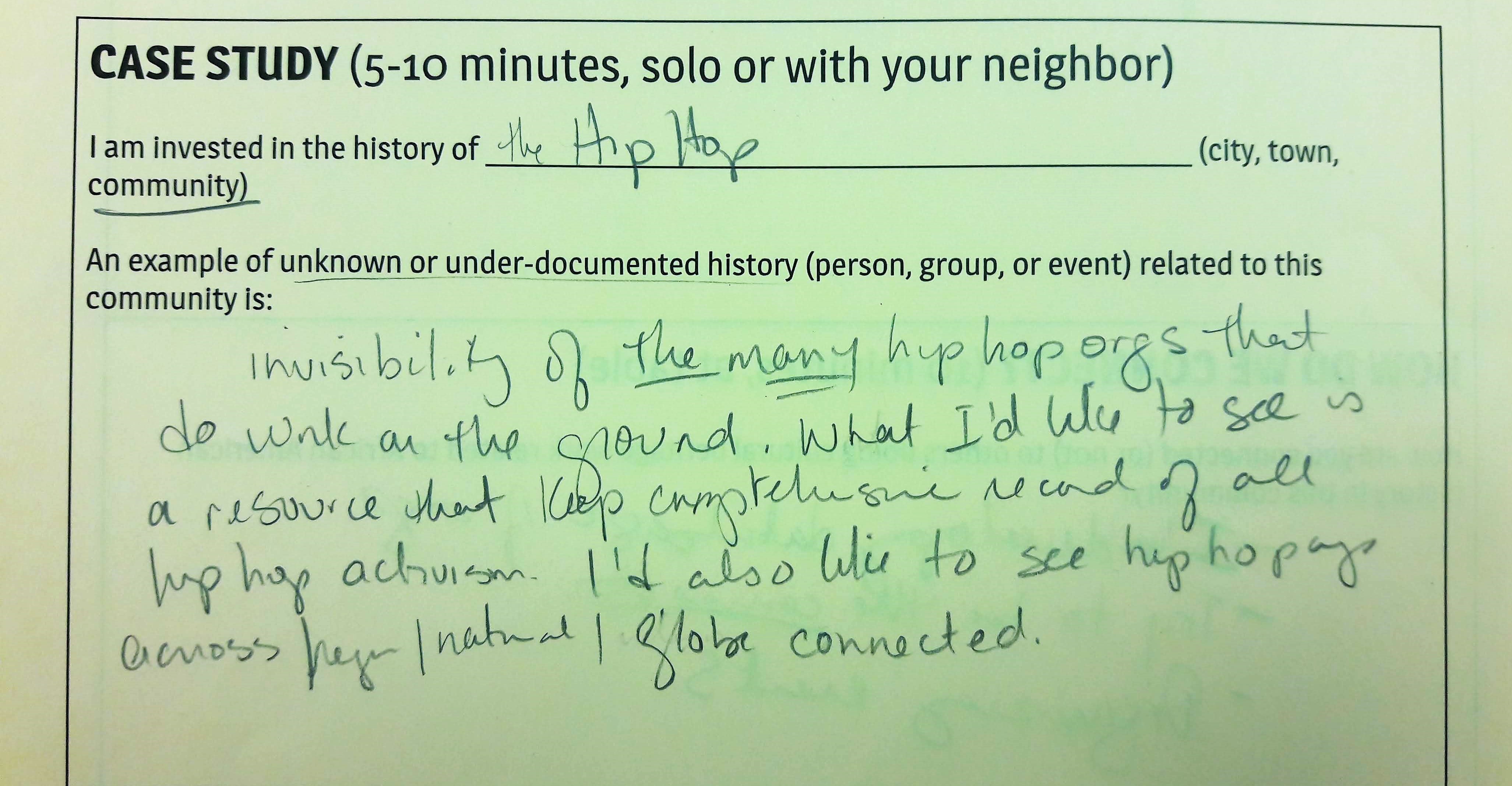
Some of the stories were just snippets, like the one from St. Helena’s Island. The participant wrote that they were invested in the history of “grandmother midwives, healing traditions of the Sea Island for post-natal care.” This participant added in the “What does this Community need to better tell its story?” section that space was needed for preservation but also components like opportunities for researchers as well as public health advocacy and its history were needed.
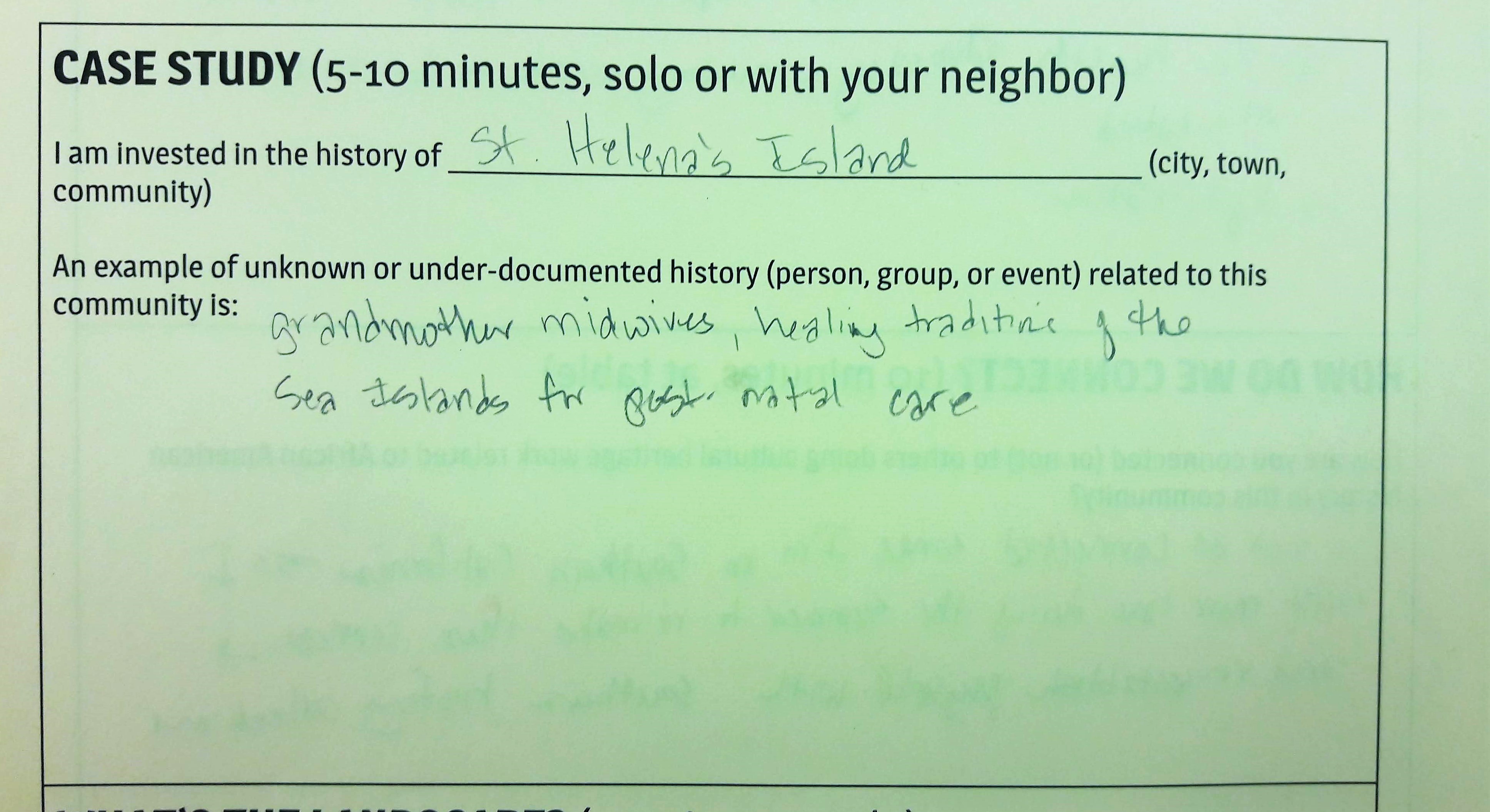
One participant focused on how the historic practices of systematic racism continue to harm residents of Battery Drive (now Heights) Raleigh, NC. This participant wrote that the community needs “sustainable and accessible resources to keep long-time residents (older), and generational homes in the family and protect against predatory practices to sell (tax relief and assistance for elderly, assistance for home improvement and maintenance) – you can’t have an oral history if the people are kicked out.” They also remarked on the need for equitable landmark preservation designations. This first point, about the housing practices and maintaining generational homes related to a BlackCom panel “Financial Resources for the Underserved & Underbanked.” Panelists spoke about the problems that arise from communities lacking financial and property legacies, answering questions like “Q: what other barriers exist in the black community for the transfer of wealth? A: redlining, lack of financial legacy, institutional barriers to homeownership, equitable protection for families.”
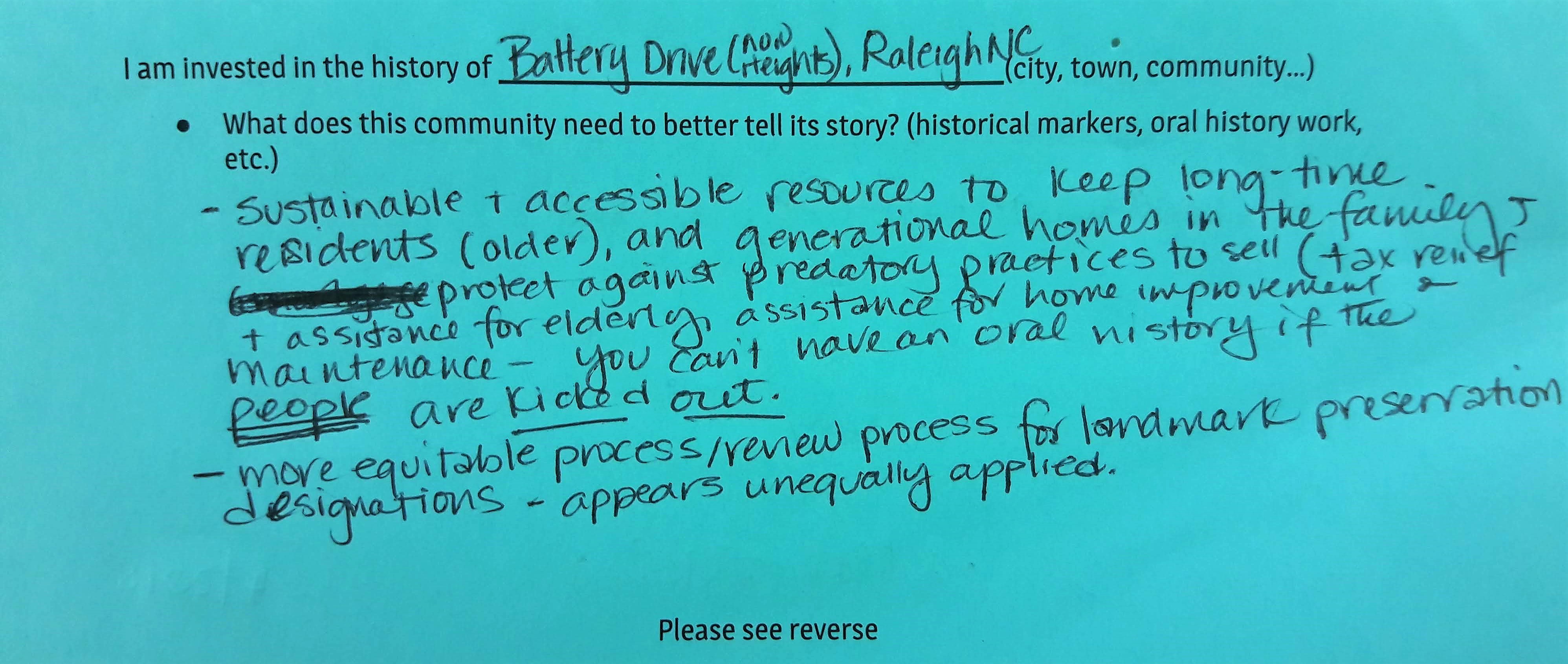
One of my personal favorites from the Street Team table was a response about the Greentown community in Georgetown, South Carolina. When asked what this community needs, the response was:
My mother, Dorothy Alston was the first African American Nurse in my hometown. She worked at Georgetown Memorial Hospital in Georgetown, South Carolina. Oftentimes, in our community, people would come knock on our door in the middle of the night for medical care. The reason being that my mother would serve as the medical provider/ nurse/ doctor. Back then many people didn’t go to the doctor because they just couldn’t afford it.
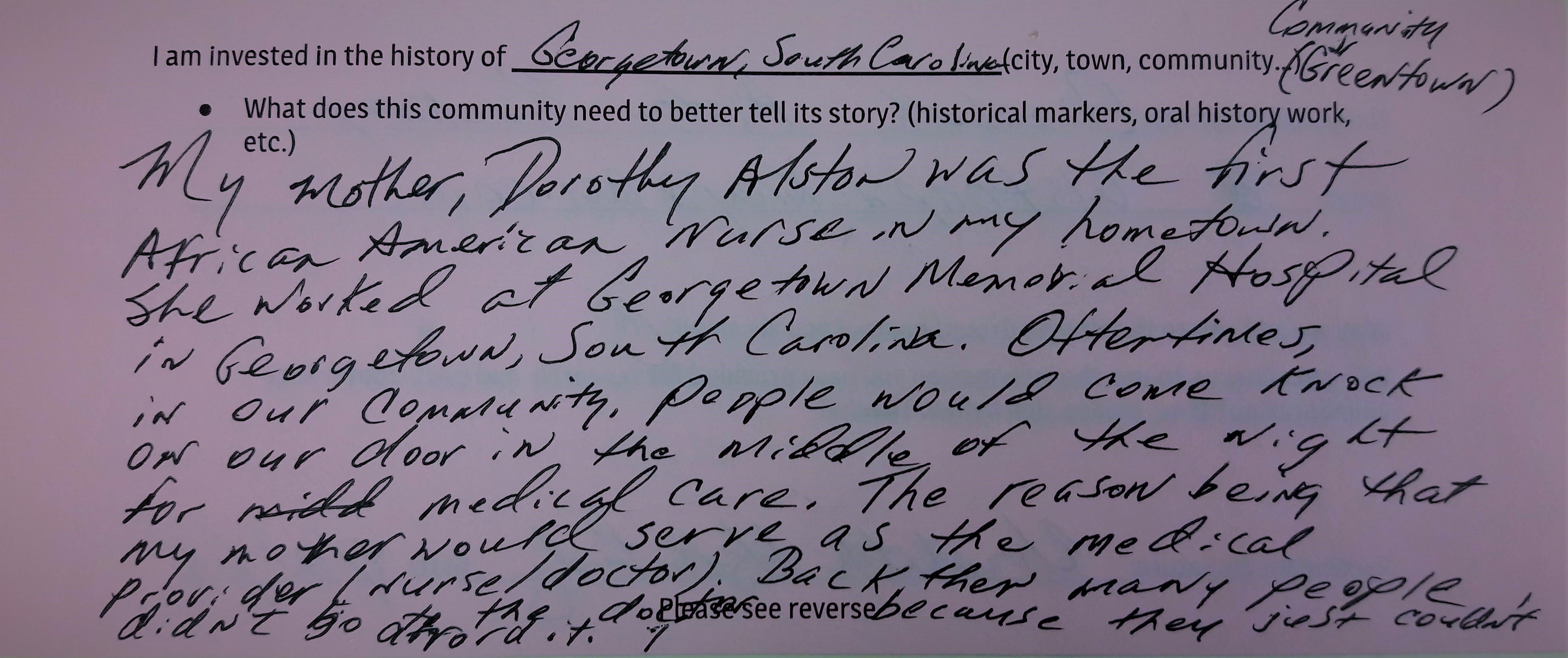
The Street Team and charrette data made it very clear that there are no quick fixes for communities. There are concrete needs: space, funding, outreach. But there are intangibles also: visibility, trust building, reconciliation, and acknowledging the legacies of oppression and a history of being taken advantage of by those in positions of power. There are needs beyond historic preservation and the interwoven nature of policy, public health, and financial education need to be better studied. Positionality matters and the historic record has not accurately represented those in marginalized spaces. One or two charrettes or community mapping projects can’t fix that. But informed action can shift the paradigm.
We post every week on different topics but if there is something you’d like to see, let us know either in the comments or email Claire our Community Outreach Coordinator: clairela@live.unc.edu.
Follow us on Twitter @SoHistColl_1930
#CommunityDrivenArchives #CDAT #SHC
#EKAAMP #HBTSA #ASHC #SAAACAM
#yourstory #ourhistory #community #AiaB
#Charrette #StreetTeam #activism #BlackCom2018
